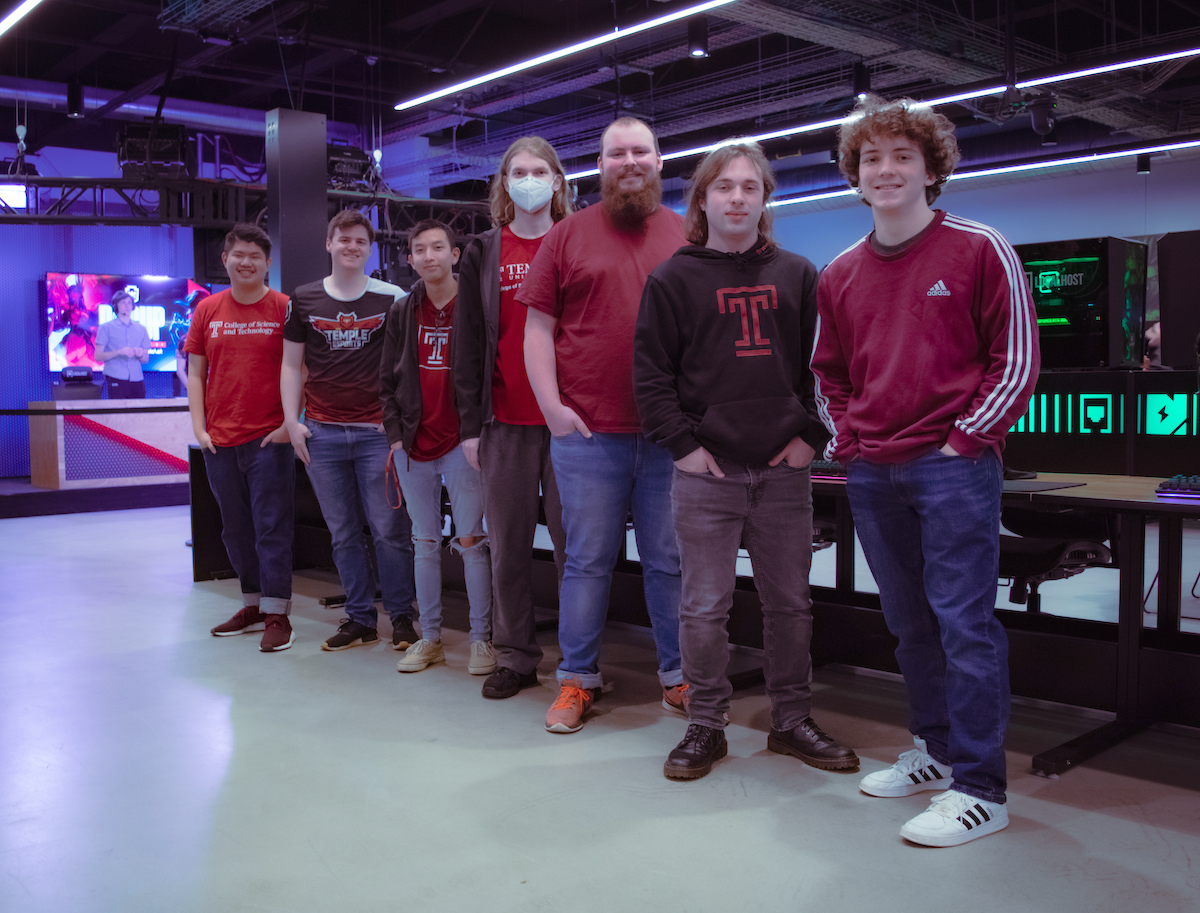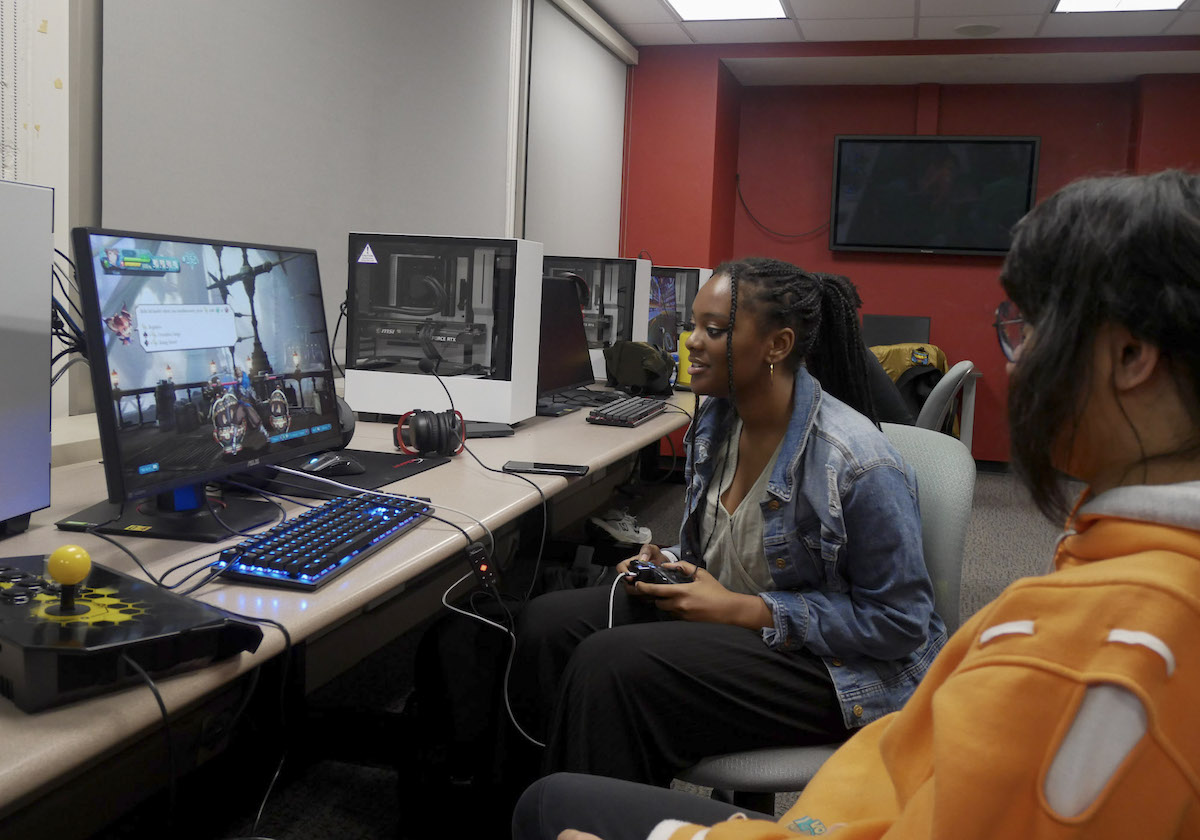Despite losing its would-be purpose-built esports arena last year, Philadelphia is still home to a plethora of dedicated spaces for gaming and competitions. And as interest in the industry is rising among college students, we’ve seen more academic courses and partnerships serving young people looking to break into the industry.
Philly’s largest esports company, Nerd Street Gamers, often partners with universities — such as Albright University in 2022, to develop a 10,000-square-foot gaming facility in Reading. Once completed, it will be one of Nerd Street’s Localhost facilities, which means anyone from casual gamers to college students to high school teams to tournament organizers could use the space.
Its work with Temple University is another example. Official as of this month, this partnership means any of the approximately 120 students in Temple’s Esports Club will have free, unlimited access to the company’s Localhost on Broad Street near Callowhill.

The Block, Nerd Street’s 2021-opened HQ, features a main space called “The Pit” with up to 135 PC gaming setups. Here, players can game during tournaments, or the general public can come in and use the space during non-event days. The space also offers a stage for finalist-level gaming between teams or players who spend tournaments battling it out, and a production room for a team that produces Nerd Street’s livestreams, shows and tournaments across the country. The first floor also hosts training space for teams and coaches to hone their skills while visiting.
The esports teams at Temple are completely student-run and organized, club advisor and professor Daniel Funk told Technical.ly. He’s the chair of the department of sport and recreation management at Temple’s School of Sport, Tourism and Hospitality Management. Though Funk comes from a traditional sports background, his interest in studying the esports industry has been growing over the last several years, and he’s been advising the esports club nearly as long.
The club has been a good retention and recruitment tool for potential students interested in esports, the chair said, as not all colleges and universities have clubs. Temple’s club members come from a variety of schools and majors, and compete on teams for nine different games. The school has also begun offering scholarships for those in the esports club, supporting 13 students with a few thousand dollars toward tuition each year.

Though the club has some dedicated space in Gladfelter Hall, it’s too small to accommodate the number of club members, and the building has restricted hours, Funk said.
“As a university we’re looking for ways to get students engaged, so we went looking for spaces on campus, but space was really tight,” Funk said. “But it takes a little more infrastructure, you know. Technology is a big part of that, especially among a more competitive group. And they want to have the competitive advantage, or at least be similar to someone else playing on a really high-end technology infrastructure setups.”
Because of those needs, the Nerd Street partnership, which allows esports club members access to The Block, alleviates some pain points for the students. And it’s just three stops down the Broad Street Line, compared to a space the club tried out on Ambler campus, Funk said.
Through the partnership, Temple club members will also get to work with Nerd Street on hosting events. While Temple Esports Club members will have free access to The Block, all Temple students can use the facilities for a discounted rate.
At the university, Funk said he’s seen the Esports Club serve a “dual purpose.” It’s created a social space that exists physically and digitally, and it’s given a competitive element to gaming, as the university saw a rise in interest to the activity over the last several years.
“I was kind of very insistent, as advisor, that we need to have both. It’s great to have two or three teams that are really good, but we also need to make sure this is a space where students want to belong,” Funk said. “They can come, they can interact as part of the way of getting people engaged at Temple beyond the classroom.”







